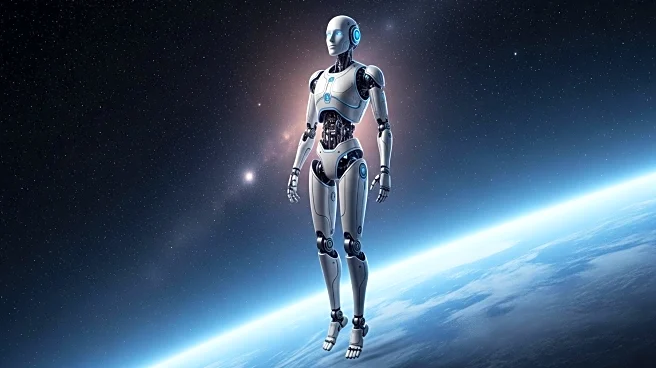What is the story about?
What's Happening?
In Episode 175 of 'This Week In Space,' hosts Rod Pyle and Tariq Malik discuss the integration of artificial intelligence in space missions with Dr. Daniel Selva from Texas A&M. The episode delves into the dynamics between crew members and AI systems during long-duration spaceflights, such as missions to Mars. Dr. Selva shares insights from his study conducted in NASA's HERA habitat simulator, which examines how astronauts interact with AI during routine operations and emergencies. The discussion highlights the importance of trust and effective communication between human crews and AI systems, which are crucial for mission success.
Why It's Important?
As space exploration advances, the role of AI in supporting astronauts during missions becomes increasingly significant. AI systems can assist with navigation, data analysis, and emergency response, potentially enhancing mission efficiency and safety. Understanding the interaction between humans and AI is vital for developing systems that are reliable and trusted by crew members. This research contributes to the broader effort to ensure that AI can effectively support human space exploration, paving the way for future missions to distant planets like Mars.
What's Next?
The findings from Dr. Selva's study may inform the design and implementation of AI systems in upcoming space missions. As space agencies plan for longer and more complex missions, the integration of AI will likely become more sophisticated, requiring ongoing research into human-AI interaction. Future studies may focus on optimizing AI systems to better support astronauts, addressing challenges related to trust and communication. The continued exploration of AI's role in space missions will be crucial for advancing human space exploration capabilities.
















